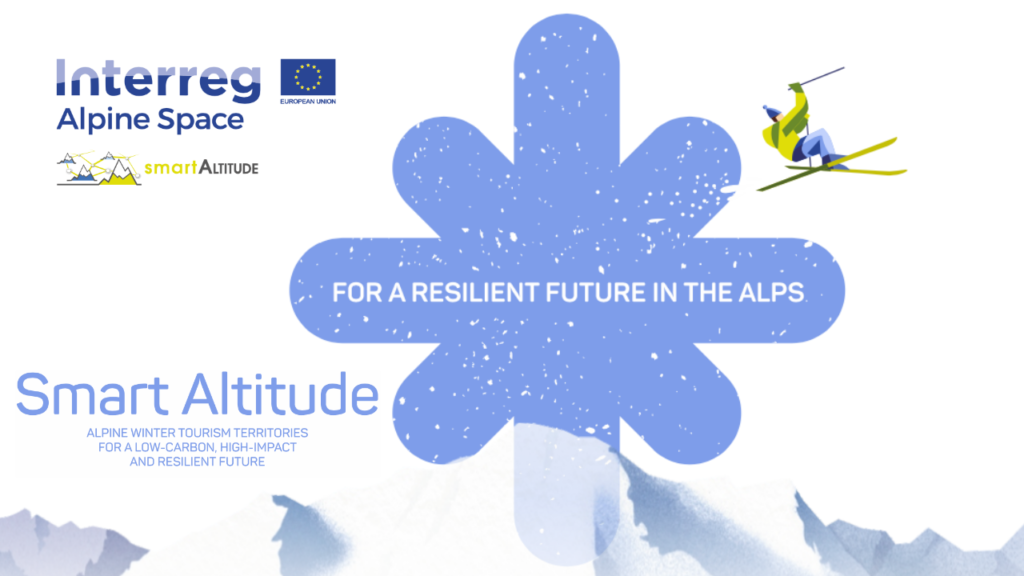By Stefano Sala, researcher at UNIMONT – Università della Montagna
Climate change and the call for reduction of greenhouse gas emissions, the efficient use of (renewable) energy, and more resilient winter tourism regions, forces ski resorts across the European Alps to look for “smart” approaches to transition towards a sustainable, low-carbon economy.
In the framework of the Interreg Alpine Space Smart Altitude Project, that aims at enabling and accelerating the implementation of low-carbon policies in winter tourism regions, we point out this recent publication of interest for different EUSALP Action Groups. The project sees the involvement of 6 Alpine States and 10 partners among which public administrations (Municipality of Les Orres – FR), Research Centres (Austrian Academy of the Sciences – AT, UNIMONT – University of Milan -IT) as well as regional development agencies (BSC Kranj – SL).
Drawing on the Smart City and Smart Villages concept and considering the different historical developments of Alpine resorts, the Smart Altitude Decision-Making Toolkit was developed using a combination of an energy audit tool, a WebGIS, and collaborative and innovative living labs installed in Les Orres (France), Madonna di Campiglio (Italy), Krvavec (Slovenia), and Verbier (Switzerland). This step-by-step Decision-Making Toolkit enables ski resorts to get feedback on their energy demand, an overview of the locally available sources of renewable energy, and insights regarding their potential for improving their energy efficiency by low-carbon interventions. The Decision-Making Toolkit is suitable for knowledge transfer between stakeholders within living labs and moreover provides the flexibility for tailor-made low-carbon strategies adapting to the unique assets and situatedness of ski resorts.











